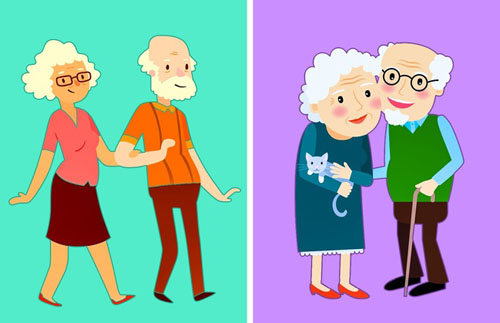A person’s health directly depends on their lifestyle. And this is why we absolutely have to keep track of the latest scientific discoveries concerning health. For example, scientists have recently learned that dim light makes us dumber, drinking hot tea can be extremely dangerous, and there are a thousand times more bacteria in fitness clubs than in public restrooms.
We have collected 10 recent medical discoveries that everyone needs to read about.
1. Brain aging starts at the age of 25
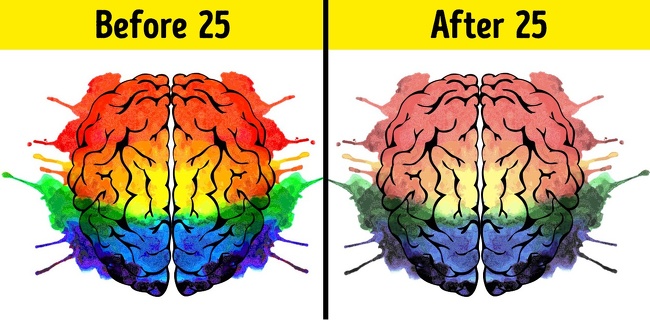
The scientists from the Medical University of Gdansk, Poland, and Lancaster University, UK, have learned how to track the pulsation of spinal fluid. Thanks to this, they learned that the pulsation frequency slows down starting from the age of 25, which means that the human brain starts aging from the age of 25, and not at 40 as was previously believed.
2. More bacteria is found in gyms than in bathrooms
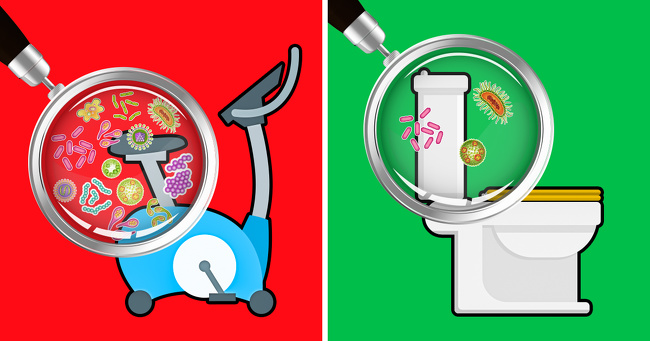
The team at the credible fitness resource, Fitrated.com has done their own research and found out that the risk of getting an infection in a gym is much greater than that in a public restroom: the study found 326 times more bacteria in a gym than on any toilet seat. Besides, more than 70 % of the bacteria are potentially dangerous for people as they can easily cause a cold or a skin disease. The most contaminated places in gyms were stationary bikes and treadmills. Specialists recommend taking the simplest safety precautions: use anti-bacterial wipes, don’t touch your face with your hands and don’t walk barefoot in the locker room or the shower.
3. Sleep can ward off sugar cravings

The scientists from the King’s College of London, UK, conducted an experiment with 42 perfectly healthy volunteers of normal weight who slept less than 8 hours a night. Half of the participants had to sleep less than usual for one month. Also, the participants were asked to write down everything they ate. At the end of the experiment, the duration of sleep increased by 21 minutes on average. The analysis showed that even this insignificant increase in sleep led to the decrease of consumption of sweet food by 10 grams a day which is one-third of the daily norm. Sleeping longer also led to a decrease in the interest of carbohydrates.
4. Hot tea could increase the risk of developing cancer

Chinese doctors claimed that it was dangerous to drink hot tea. For 9 years, doctors had been keeping track of the eating habits and health of almost 500,000 people aged from 30 to 79 years. The specialists found 1,731 cases of esophageal cancer among the subjects. The scientists also found that this disease was found 5 times more often among the patients who drank hot tea on a regular basis. The doctors made a conclusion that beverages hotter than 149 °C could harm the internal organs. Additionally, these complications are often caused by smoking and drinking. All these bad habits can lead to cancer.
5. Dim light makes us stupid

The scientists from Michigan State University conducted a study that proved being in dimly lit rooms worsens brain productivity. During the experiment, mice were kept in conditions where there was little light. For people, a gloomy winter day can have the same effect as a dimly lit room. As a result, the mice that were living in darker conditions forgot most of what they had been taught before, and they hardly did the tasks which they had easily done prior to the experiment. When the mice were later kept in bright daylight, the productivity of their brains restored completely.
The researchers concluded that dim light worsens the connections between neurons and leads to the decrease in intelligence. In other words, dim light it makes you dumber.
6. Imagination can help decrease pain
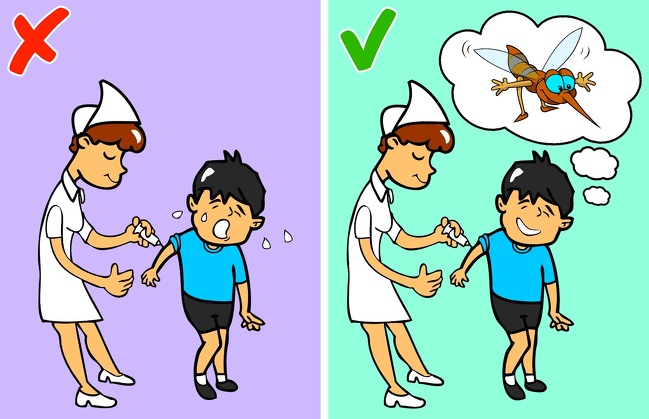
A psychologist at Leden University Kaya Peerdeman made a funny discovery when she was studying the placebo effect. It turned out that if you imagine that having an injection is painless, you actually might have less pain. This was proven during an experiment where participants were asked to put their arm in cold water for some time. Then, they were asked to do this again but while imagining that their arms were protected by a waterproof glove. Surprisingly enough, the placebo effect worked and the participants really experienced less pain when they put their arms in the cold water while using their imagination.
Peerdeman is planning to check this method of pain relief using the imagination on real patients who are about to have a surgery.
7. Muscles get older due to mutations in stem cells
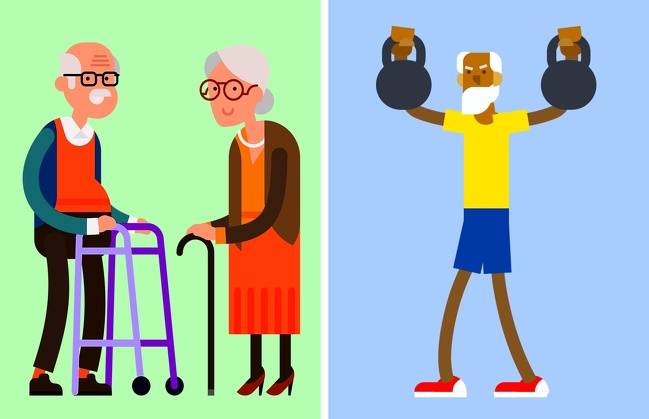
A new study by researchers at Karolinska Institute in Sweden shows how an unexpectedly high number of mutations in the stem cells of muscles can impair cell regeneration. They found out that by the age of 70, every stem cell has undergone more than a thousand mutations. The DNA “breakage” is the consequence of cell division. But at a young age, the mechanism of restoring the nucleic acid works very well compared to that in an older person. Now scientists want to find out if physical activity in old age can slow down this pathological process.
8. Early baldness can be a sign of a heart condition
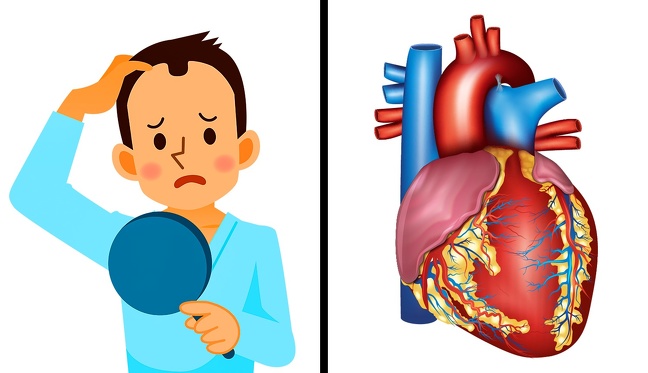
More than 2,000 young men living in India were observed during this study. Scientists found that those who had cardiovascular problems became bald early or their hair turned grey. So, early baldness in men younger than 40 could be a sign of upcoming problems with the cardiovascular system.
9. Pride saves old people from falling
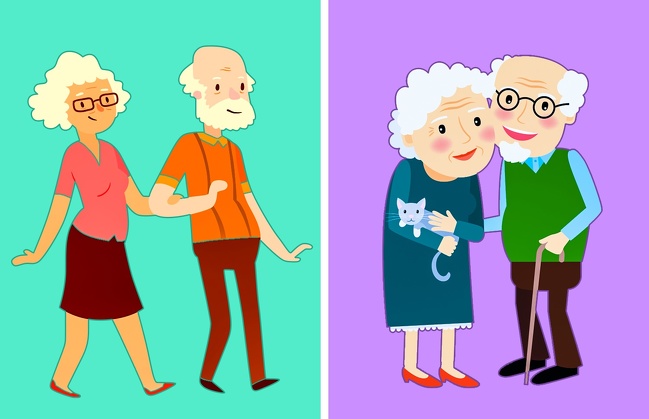
As you probably know, elderly people fall more often than young people for a number of reasons. The main reasons being bad eyesight, motor impairments and a sedentary lifestyle.
But the scientists at Aberdeen and Sterling Universities conducted a few studies and found that elderly people who were confident and proud fell 19 % less than those with poor confidence of the same age. During future research, they will try to understand the mechanisms that explain this interesting phenomenon.
10. The secret to a long is revealed
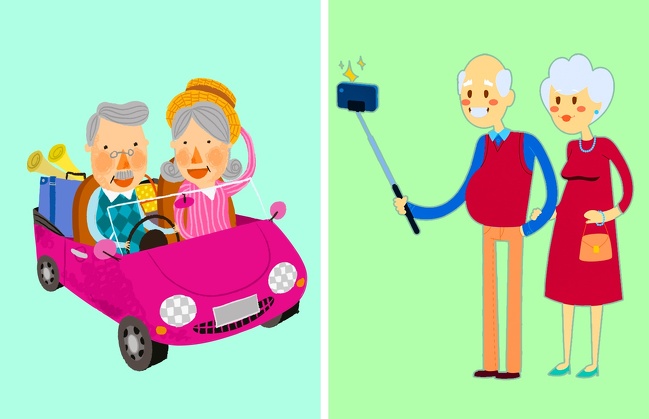
Scientists from Northwestern University had been observing a group of people aged between 80 and 100 years old who didn’t have the slightest signs of dementia, and discovered the secret to their longevity. You should know that most of the subjects of this study were regular smokers, drank alcohol, loved coffee, didn’t have any special diet, and some of them even ate harmful foods like French fries and hamburgers — and none of them slept 8 hours a night as doctors recommend. But all of the participants were similar in that they had a very optimistic outlook, were emotionally stable and socially active.
The leading author of the study, Professor Emily Rogalski, came to the conclusion that a positive life view protects us from dementia better than a good diet or absence of bad habits.




